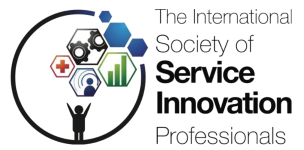Dear Colleagues,
Hello! We are serving as co-chairs of the “Smart Service Systems: Analytics, Cognition and Innovation (http://www.hicss.org/#!smart-service-systems/c1mcg)” minitrack in the Decision Analytics, Mobile Services and Service Science Track of the upcoming 49th Hawaii International Conference on System Sciences (HICSS) (http://www.hicss.org/). We are writing to scholars such as you with expertise in various areas of service systems, analytics, innovation, mobile systems and cognition in hopes that you will consider submitting a paper to our minitrack. The deadline for submitting papers to HICSS-49 is June 15, 2015. Please consider submitting your work if it is related to any of the specific topics listed and/or if you feel it addresses visions of the future of this track. We expect a range of concepts, tools, methods, philosophies and theories to be discussed. We thank you, in advance, for your valuable contribution to HICSS-49. Please let us know if you have any questions or need additional information. We look forward to receiving your submission!
Best Regards,
- James C. Spohrer, IBM Almaden Research Center, spohrer@us.ibm.com
- Haluk Demirkan – University of Washington – Tacoma, haluk@uw.edu (primary contact)
- Ralph D. Badinelli – Virginia Tech, ralphb@vt.edu
CALL FOR PAPERS for HICSS-49
Hawaii International Conference on System Sciences
Additional detail may be found on HICSS primary web site: (http://www.hicss.org/)
Smart service systems can be characterized by: (1) the types of offerings to their customers and/or citizens, (2) the types of jobs or roles for people within them, and (3) the types of returns they offer investors interested in growth and development, through improved use of technology, talent, or organizational and governance forms, which create (dis)incentives that (re)shape behaviors. An important trend in smart service systems is the increasing availability of cognitive assistants (e.g., Siri, Watson, Jibo, Echo, etc.) to boost productivity and creativity of all the people inside them. There is a need to apply robust research findings in the appropriate management and organizational contexts related to innovation of smart service systems, service innovation, quality, architecture, design and delivery, and the resulting customer satisfaction and business value. In part, because of analytics and cognitive systems, smart service systems adapt to a constantly changing environment to benefit customers and providers. Using big data analytics, service providers try to compete for customers by (1) improving existing offerings to customers, (2) innovating new types of offerings, (3) evolving their portfolio of offerings and making better recommendations to customers, (4) changing their relationships to suppliers and others in the ecosystem in ways their customers perceive as more sustainable, fair, or responsible.
The goal of this track is to explore the challenges, issues and opportunities related to innovation of smart service systems that enable value co-creation with analytics, cognitive and human systems. We are interested in novel theories, approaches and applications for innovation of smart service systems. Possible topics of applied, field and empirical research include, but are not limited to:
- Theories, approaches and applications for innovation of smart service systems
- Value co-creation processes, metrics and analytics for smart innovation processes
- Methods scale the benefits of new knowledge globally, rapidly, and profitably
- Service-oriented agile IT realization platform for smart service co-creation
- Place of cognitive systems, computing, system engineering, cloud for smart service systems
- Innovation ecosystems with internet and internet-of-things
- Theories and approaches for integrating analytical and intuitive thinking processes
- Open innovation and social responsibility
- Planning, building and managing design and innovation infrastructures and platforms
- Technology and organizational platforms support rapid scaling processes (smart phones, franchises, etc.)
- Smart service systems include the customer, provider, and other entities as sources of capabilities, resources, demand, constraints, rights, responsibilities in value co-creation processes, and includes current applications of human and cognitive systems
- Analytics models, tools and engine for analytics support
- Agile business development platform for operational enablement: business processes, rules, real-time event management
- The commoditization of business processes (e.g. out-tasking, ITIL, SCORE), software (e.g. the software-as-service model, software oriented architecture, application service providers) and hardware (e.g., on-demand, utility computing, cloud computing, software oriented infrastructure with virtualized resources, infrastructure service providers for innovations
- Self-service and smart technologies & management for sustainable innovations
- Services implications to value chains, networks, constellations and shops
- Collaborative innovation management in B2B and B2C e-commerce
Important Deadlines
- June 15 – Submit full manuscripts for review. The review is double-blind; therefore this submission must be without author names. How and when to submit a paper http://www.hicss.org/#!call-for-papers/c1cd9
- Receive acceptance notification by August 16.
- Revise your manuscript to add author names. If required, make other changes.
- Submit Final Paper for Publication by September 15.
